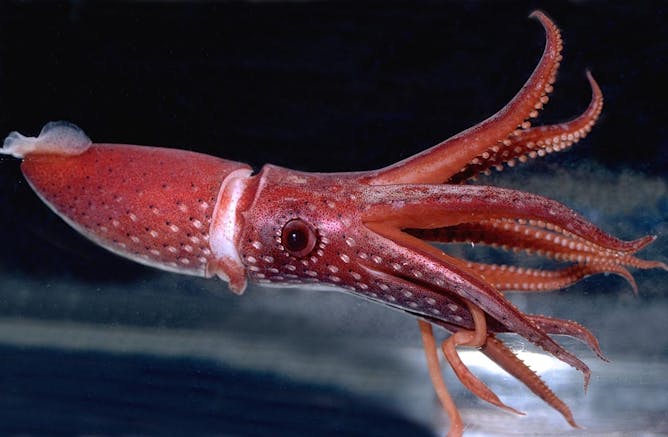|
|
|
Editor's note
|
|
Nau mai, haere mai - welcome to this week’s newsletter about research and issues facing New Zealand.
A study just published reveals several species of squid not seen anywhere in New Zealand waters before. Cephalopod expert Kat Bolstad, at AUT, reports that five species appear likely new to science and 28 have not been reported previously in the Kermadec region, which is part of a proposed, but stalled, ocean sanctuary.
A bill removing semi-automatic weapons and assault rifles from circulation, with some exceptions for hunting and pest control, is expected to be in force by the end of the week. Marie Russell and Hera Cook, at the University of Otago, have analysed social media pages of the New Zealand firearms community and found an aggressive online gun culture.
And just before the last season of Game of Thrones premieres on April 14, cognitive psychologists Christel Devue and Gina Grimshaw, at Victoria University of Wellington, explain how the characters from the series have helped them to identify why some people are better than others in recognising and remembering faces.
Please share this newsletter and encourage friends and colleagues to sign up.
|
Veronika Meduna
New Zealand Editor
|

|
|
Top story
|

This squid belongs to one of the families (Histioteuthidae) that is highly diverse but was not previously recorded from the Kermadecs.
Richard Young
Kat Bolstad, Auckland University of Technology; Heather Braid, Auckland University of Technology
New squid research north of New Zealand nearly doubles the known cephalopod diversity in the Kermadec region, where a proposal to create one of the world's largest marine reserves has stalled.
|

Prime minister Jacinda Ardern announced a ban on military-style weapons within days of the Christchurch terror attacks.
AAP/Martin Hunter
Marie Russell, University of Otago; Hera Cook, University of Otago
New Zealand's gun lobby presents licensed gun owners as sensible and responsible, but the response to gun law changes reveals an aggressive online culture.
|

Maisie Williams plays Arya Stark in Game of Thrones and is one of the actors whose face is part of a new test of face recognition skills.
AAP
Christel Devue, Victoria University of Wellington; Gina Grimshaw, Victoria University of Wellington
Facial recognition is a crucial skill, but difficult to test accurately. Researchers are taking advantage of the popularity of Game of Thrones to test the limits of our ability to identify a familiar face.
|

The Crusaders rugby club has announced an end to its pre-match entertainment of sword-wielding horsemen, as seen here ahead of last year’s Super Rugby final in Christchurch.
AAP/SNPA/Ross Setford
Geoff Troughton, Victoria University of Wellington
The Crusaders rugby club has been embroiled in debate about its branding as the imagery, once widely used in New Zealand, has become embarrassing, even repugnant, following the Christchurch attack.
|

Fijian prime minister Voreqe Bainimarama’s intervention has led to the quick release of three New Zealand journalists.
AAP/Darren England
Dominic O'Sullivan, Charles Sturt University
The prompt release of New Zealand journalists, arrested while investigating environmental degradation caused by a Chinese development project in Fiji, highlights PM Bainimarama's diplomatic dilemma.
|

An analysis of population statistics shows that most New Zealanders, from any groups, don’t report experiencing intolerance or discrimination.
AAP
Simon Chapple, Victoria University of Wellington
Many New Zealanders responded to the Christchurch terror attack with displays of unity and openness, and research into attitudes shows that tolerance is a widely held value.
|

As New Zealand law currently stands, murder is the most serious charge, even for a terror attack or hate crime.
AAP/Mick Tsikas
Brenda Midson, University of Waikato
Under New Zealand law, murder is the most serious charge available to prosecutors. The Christchurch terror attack raises the issue of how murder should be defined to reflect hate crimes.
|
| |
| |
| |
| |
| |
| |
|
|
|
|
|
|
|